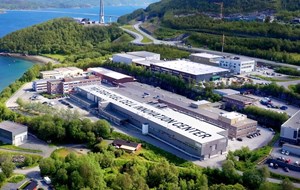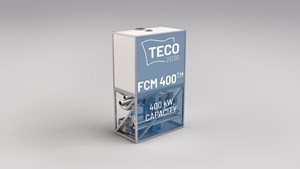News
TECO 2030 and Yokogawa partner for the utilization of H2 fuel cells in industrial applications
TECO 2030 ASA and Yokogawa Electric Corporation signed a strategic partnership and investment agreement regarding the development of technology for utilizing H2 fuel cells in industrial applications. Under this agreement, Yokogawa Electric has invested in TECO 2030 by way of acquiring treasury shares, and the two companies will collaborate on optimizing H2 fuel cell technology and exploring business opportunities for distributed power sources in the maritime transportation and other industrial sectors.
H2 fuel cells use an electrochemical process that combines H2 and oxygen to produce electrical energy and water and are utilized as power sources in fuel cell vehicles (FCV) and stationary power supply devices. Green H2 and ammonia are considered promising energy carriers for the storage and transportation of renewable energy that has been produced as electricity.
Fuel cells powered by green H2, or H2 produced through green ammonia-to-H2 cracking technology, are more energy efficient than conventional combustion engines and don’t generate nitrogen oxide (NOx), so can be used as zero-emission energy sources in a range of applications. Although adoption has been limited up to now, technology maturity and a dramatic increase in demand for H2-powered marine vessels are driving expansion of the fuel cell market, and the resulting reduction in manufacturing costs is expected to in turn accelerate use in the automotive and industrial sectors as well.
TECO 2030 develops and manufactures H2 fuel cells, and has opened in Narvik, Norway, a gigafactory for the production of H2 proton exchange membrane (PEM) fuel cells and energy modules, which consist of multiple cells and auxiliary operating equipment. Production of H2 fuel cells is already underway, and module production is expected to start within the next few months. The production capacity will be built up over time, targeting an output capacity of 400 MW in 2025 and 1.6 GW in 2030. TECO 2030’s H2 fuel cells employ unique technologies developed together with technology partner AVL, a forerunner in this field, enabling industry-leading energy density and performance.
Yokogawa Electric brings to this partnership decades of experience in developing core measurement, control, and information technologies for the energy, chemical, and other process industries. Yokogawa Electric and TECO 2030 see opportunities for applying this knowhow to develop technology for optimizing the operation of fuel cells and will also explore their use as distributed energy resources in industries that have high decarbonization needs.
Tore Enger, Group CEO of TECO 2030 said, “I am very excited to have Yokogawa on board as an investor and strategic partner for the ongoing development of TECO 2030’s complete fuel cell system. I am looking forward to working together toward the common goal of a zero-emission future.”



